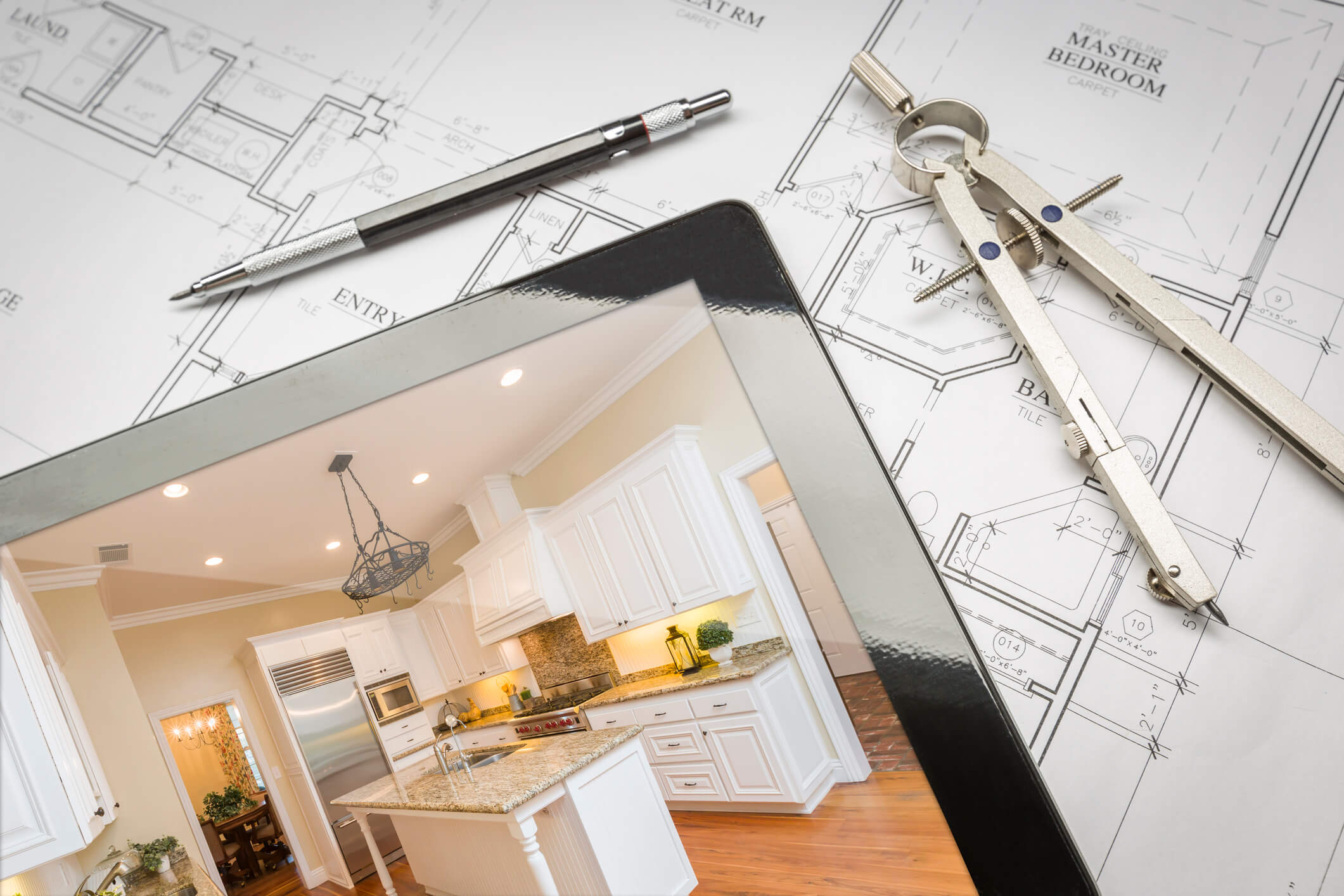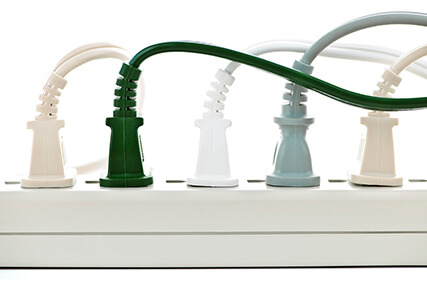Home Learning Center
Welcome to your starting point on home ownership. Here we have curated key home articles for you, or scroll down to find common FAQs, tips and other advice.
Home

5 Common Reasons Homeowners Use a HELOC
A Home Equity Line of Credit (HELOC) isn’t a one-size-fits-all solution, but for many homeowners, it offers flexibility that other financing options don’t. Because you can access fun...
Read More
What is a HELOC and How Does it Work?
If you’re a homeowner, you may have heard the term HELOC but aren’t quite sure what it means or whether it’s something you should consider. A HELOC, or Home Equity Line of Cred...
Read More
Top 3 Things To Winterize Your Home
Generally, Texas doesn’t get serious cold weather, but when we do, it’s usually a whopper of a storm. Being prepared for winter is easier than having to fix things when the wea...
Read More
What Types of Loans Are There?
When you’re interested in buying a home, one of the first things you should do is compare different types of real estate loans. At United Heritage Credit Union, you’ll have several o...
Read More
Mortgage Processing, What it Means and Why it Matters
When buying a home, your loan application goes through several distinct stages. With today’s red-hot housing market, the timing of each stage can affect your ability to bid on a spec...
Read More
Should I Sell or Remodel My Home?
Despite the global pandemic, the housing market across Texas has been hot, but mostly for sellers. Housing inventory remains low and often homes are being sold within days of being listed, and a...
Read More
Cutting Your Energy Costs - 10 Easy Ways to Reduce Your Electricity Bill
Reducing your bill can lead to significant long term savings and we’ve got some ideas to help get that cash back into your pocket!
Read More
Spring is Coming – Considering a Refinance?
With spring just around the corner, is there a best time of the year to refinance your mortgage? That’s a question that only you will know the answer to—after all, everyone’s n...
Read More
6 Budget-Friendly Upgrades to Boost Your Home’s Value
There are only a few weeks left before summer officially begins and if you’re planning on selling your home soon, you should consider devoting some time to small, inexpensive weekend proje...
Read MoreHome Info & FAQs
Buying a Home
Buying a home is one of the biggest purchases you’ll make in your life. Because of this, it’s imperative that you understand what buying a home really means. Before you start touring neighborhoods and picking out tile patterns, there are some important things to think about and work on to ensure you are financially ready for the commitment of home ownership.
Check your credit history.
As with any major purchase requiring financial assistance, it’s a good idea to take a look at your credit before shopping for a home or a mortgage. Review your credit reports and make sure all listed information is correct. If you spot mistakes, address them as quickly as possible. While you might not have time to rebuild your entire credit history, you can see what impacts your credit score and start a credit improvement plan.
Get pre-qualified.
United Heritage offers pre-qualifications so you can determine your borrowing power. Getting pre-qualified enables you to understand how much home you can afford and set a budget as you start your search for a new home. Having a pre-qualification puts you in a better position to make a serious offer when you find the home that’s right for you.
Determine your down payment.
If it’s financially feasible, try to make a 20% down payment. A 20% down payment will eliminate the need for mortgage insurance or a second lien on the home. The amount of your down payment could impact your mortgage loan rate. However, there are still plenty of options available if you do not have 20% to put down. Determining your down payment amount is an important step in preparing to buy a house.
Use your pre-qualified purchase price to shop with confidence.
Enjoy house hunting knowing that the property you fall in love with is one you can afford. Once you have your pre-qualified purchase price, you can focus on your real estate wish list. Various factors come into play when shopping for a home, such as square footage, number of bedrooms, floor plan, outdoor area, kitchen, and much more. Make a list of the features you consider most important and keep these items in mind as you evaluate each home. You might need to be flexible as you start narrowing down your search, but a pre-qualification and planning ahead can help you stay on track.
Consider the future of your investment.
A house is more than a place for your family to live. Start thinking of your future home as an investment. In addition to the actual structure, be sure to consider the neighborhood, school system and property values. Pay attention to the amenities offered either within the community or in the areas close to the home - like nearby shopping centers, restaurants, activities for families and other conveniences. All of these things affect the overall value of your home.
Understand the current condition of the home.
Before your option period ends, hire a qualified home inspector. If you’re working with a realtor, he/she can coordinate the home inspection. Regardless of whether or not you're working with a realtor, a home inspection is always a good idea. Home inspectors will provide you with detailed information on the true condition of the home. This information helps you determine how much money you’ll need to put into repairs or upgrades should you decide to move forward with the purchase. It can also be used in negotiations with the seller - either to lower the purchase price or to ask them to complete certain repairs before moving forward.
Work with a United Heritage loan specialist.
Having United Heritage in your corner during the home-buying process is an asset. United Heritage loan specialists are armed with valuable knowledge and experience to answer any questions you may have along the way. Whether you're a first-time home buyer or a seasoned professional, a United Heritage loan specialist's goal is to make the process as quick and easy as possible. When you're ready, learn more about UHCU mortgage loans and start the home buying process.
Membership/Regular Savings account required.
United Heritage loan policies and other qualifications apply.
NMLS #630601.
What is homeowners insurance?
Homeowners insurance provides financial protection against disasters. A standard policy insures the home itself and the things you keep in it.
Homeowners insurance is a package policy. This means it covers both damage to your property and your liability or legal responsibility for any injuries and property damage you or members of your family cause to other people. This includes damage caused by household pets.
Damage caused by most disasters is covered, but there are exceptions. The most significant are damage caused by floods, earthquakes and poor maintenance. You must buy two separate policies for flood and earthquake coverage. Maintenance-related problems are the homeowners' responsibility.
What things should you consider and questions should you ask your agent?
Here are few things to discuss with your agent that will influence your decisions.
- How much will it cost to rebuild my house and replace my belongings if they are damaged or destroyed? Ask your agent to talk you through your home's features and the things you own so you can make an informed decision about coverage.
- Does the insurance company have a good reputation for customer service? Is it known for paying claims fairly and promptly?
- What discounts are available? Ask about multiple policy, security system and fire resistance discounts.
- What's the process for filing and settling a claim? Ask who to call and what happens after you file a claim.
Why do you need homeowners insurance?
It is about protecting yourself financially if something unexpected happens to your home or possessions. That's important because your home is likely one of your largest investments.
- If your home was destroyed by a fire or damaged by a natural disaster, you'd need money to repair or replace it.
- If a guest in your home is injured, liability protection and medical coverage help pay expenses.
- If you are a victim of theft and vandalism, it can reimburse you for your loss or pay for repairs.
- If you are still paying for your home, your lender will require insurance.
It is important to know that homeowners insurance is meant to cover unexpected damage, not routine maintenance. Ask your agent to talk about what is covered, and be sure to read your policy so you know exactly what's included and what's not.
After the loan closing, how long will it be before funds are disbursed?
The timing of disbursed funds depends on the type of the loan. Purchase loans and non owner occupied refinances often fund the same day as closing, while primary residence refinances and home equity loans have a 3 day waiting period prior to disbursement.
How long does the pre-qualification process take?
A pre-qualification can be completed in as little as an hour depending on the complexity of your situation.
What are the advantages of a Home Equity Line of Credit (HELOC)?
Home equity line of credit, or HELOC, programs allow borrowers to access funds on established lines of credit as needed, facilitating the ability to better manage funds and minimize interest costs. The HELOC option also allows for flexible repayment options, which means more affordable payments for the home equity borrower. Home Equity Line of Credit, or HELOC, program draw period (or initial period) requires interest only payments on the amount advanced on the line reducing the minimum monthly payment and interest paid compared to interest on the full available line. Increased access to funds and repayment options, combined with the lower interest rates and potential tax savings associated with all home equity options, make the HELOC program an attractive option to borrowing for many Texas homeowners.
When can I close on a loan?
Texas law mandates Home Equity/HELOC loans cannot close earlier than 12 days after the notice of extension of credit is provided. Loans that are not Home Equity/HELOC cannot close within 7 business days of receipt of the loan estimate. A closed end loan (Non HELOCs) can close 3 business days after the receipt of the Closing Disclosure.



















